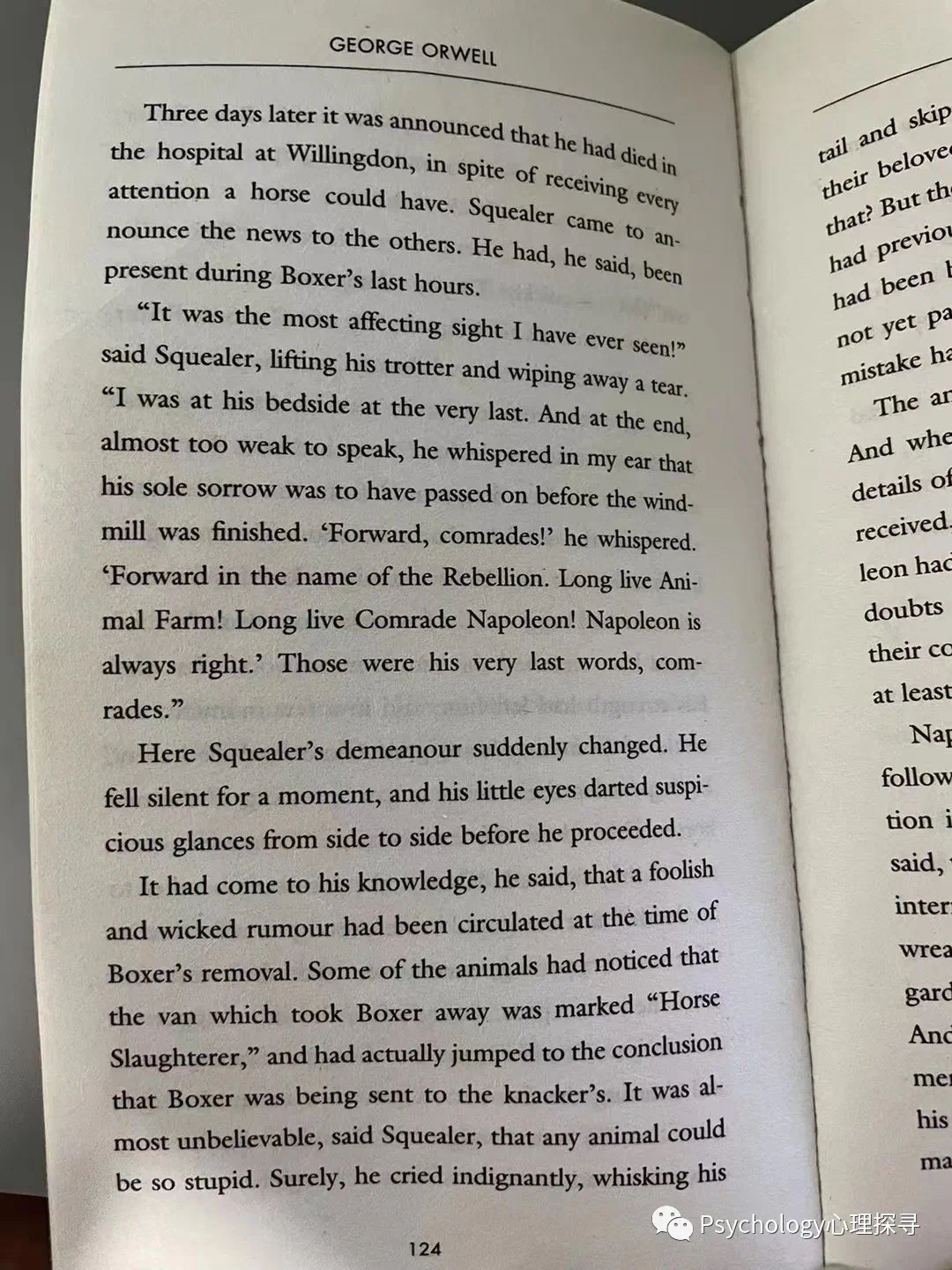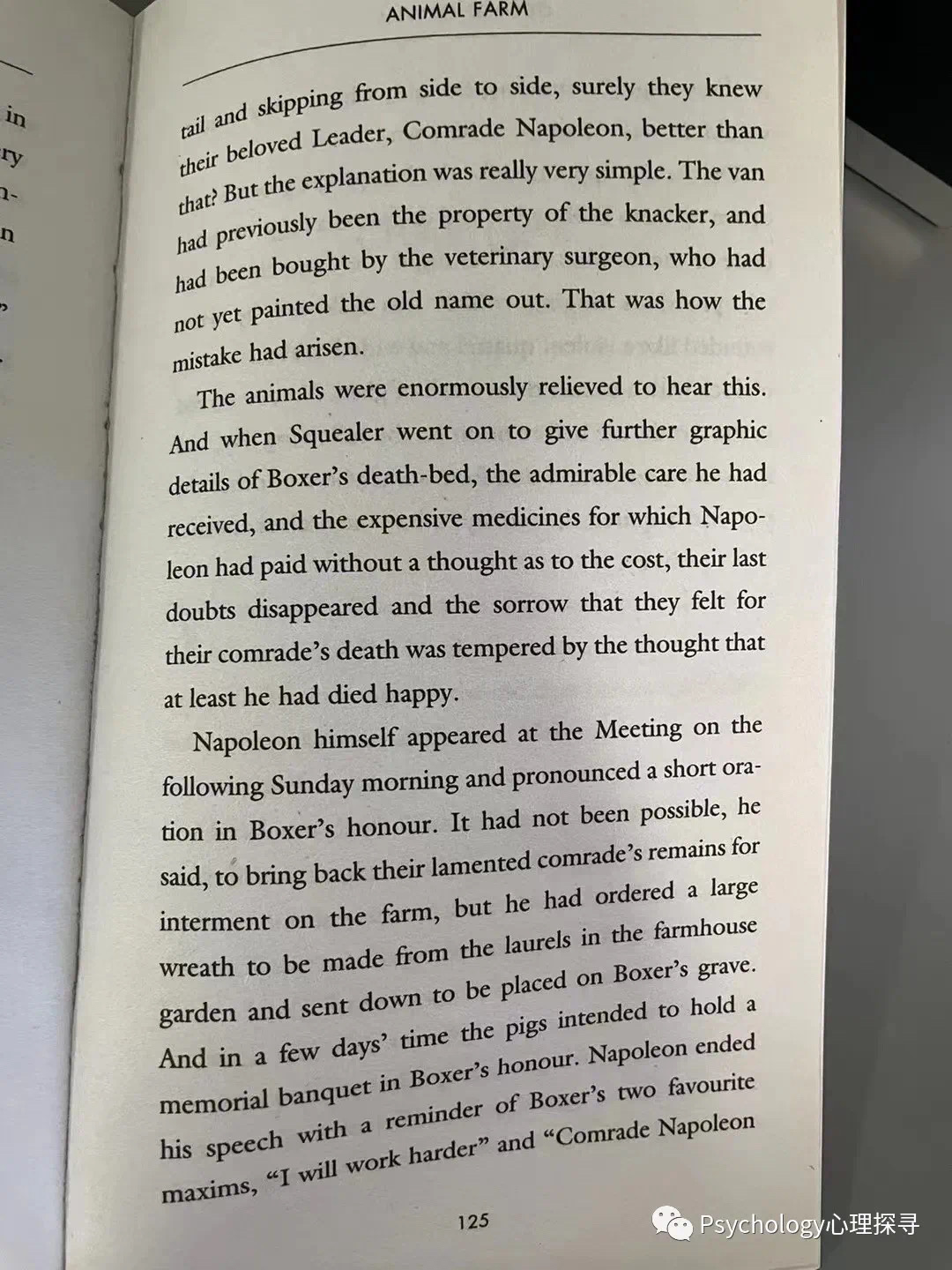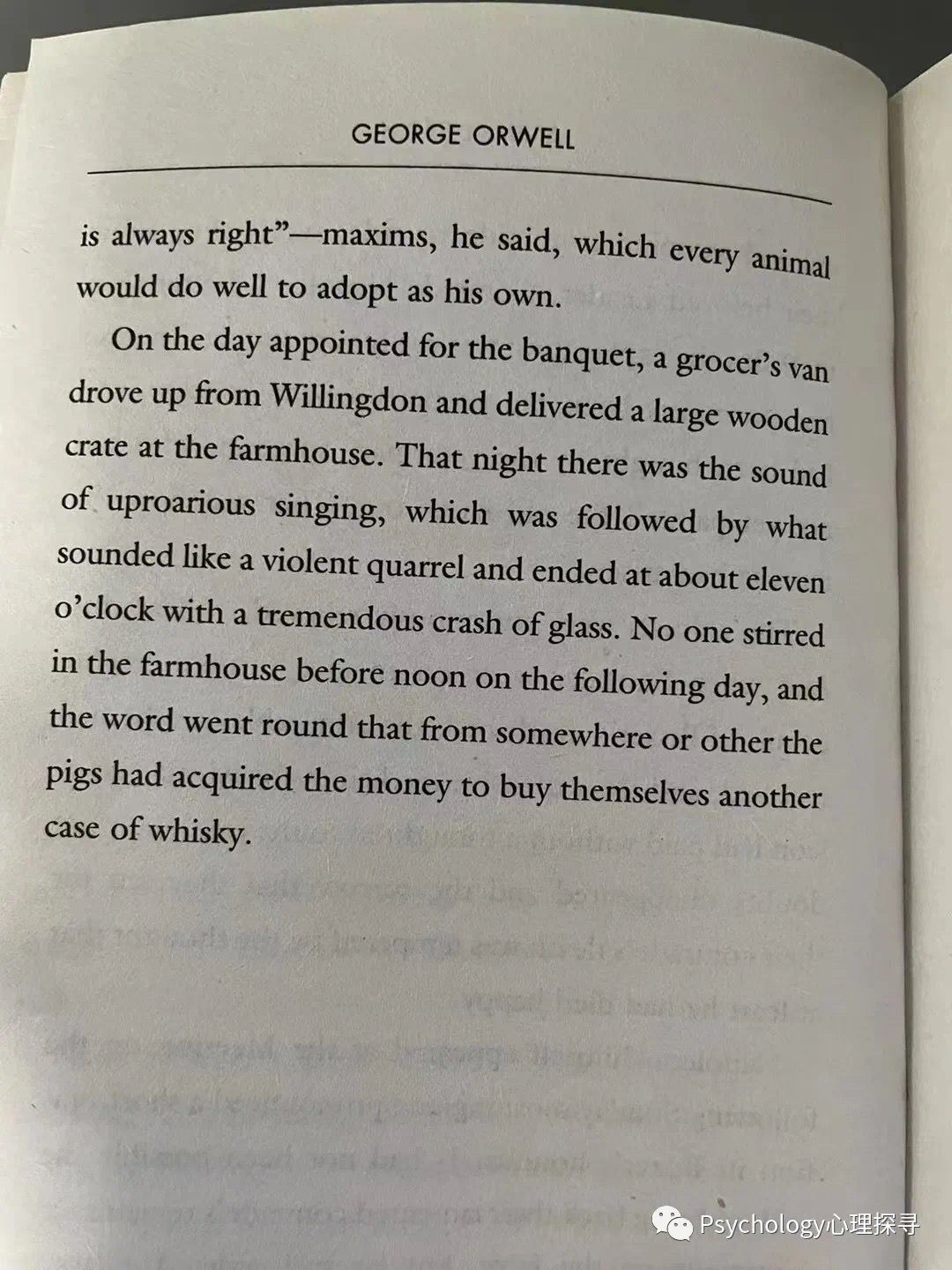躺平(quiet quitting)对精神健康有益的5个原因
KEY POINTS
"Quiet quitting" is a recent workplace phenomenon where employees are rejecting the idea of going “above and beyond” at work.
躺平,是近期兴起的一种职场现象,即员工们拒绝在工作中努力超出期望和要求。
Despite how it sounds, "quiet quitting" is better defined as setting healthy boundaries to establish work-life balance.
尽管听起来不积极,但躺平现象更确切的定义应该是:设定健康的界限,建立工作与生活之间的平衡。
The practice of "quiet quitting" overlaps with many common strategies used to improve mental health.
躺平行为与很多常见的精神健康改善策略相重叠。
“Quiet quitting” is a workplace phenomenon that’s been sweeping through mainstream and social media after a recent TikTok video went viral.
在近期的一段 TikTok短视频爆红之后,“躺平”已经成为了横扫各大主流和社交媒体的职场现象。
But what is quiet quitting, and why could it be great for your mental health?
但什么是躺平呢?为什么它会对你的精神健康有益呢?
Contrary to how it sounds, quiet quitting doesn’t mean slacking off, sabotaging, or outright quitting your job. It means rejecting the idea you have to go “above and beyond” at work. It means coming in, doing the job you’re paid to do, then going home and living your life.
与其字面含义完全相反,躺平并不是偷懒,破坏或直接辞职回家躺着。它是指拒绝在工作中超出期望和要求。它是指:去上班,做与所拿薪水相匹配的工作内容,然后回家,经营自己的生活。
Despite employment “experts” warning people of the risks of quiet quitting (like being passed over for promotions or getting laid off first), it’s important to remember the source of this advice—employers and their spokespeople. In reality, quiet quitting could be just what the proverbial doctor ordered—for your mental health.
尽管求职专家们警告人们躺平文化的风险(比如在晋升时不被考虑,或者被解雇),但重要的是要记得这种建议的来源——雇主和他们的发声者们。实际上,躺平,完全会是医生为了你的精神健康而要求你做的事情。
Here are five reasons why:
以下是5个原因:
01
It’s a salve for burnout.
职业倦怠(感觉自己燃尽,心神俱疲)的良药
Burnout, also sometimes called moral injury, frequently results from doing work that doesn’t align with our values or when we feel hamstrung from making a meaningful impact. But the predominant script for decades has been, “Well that’s just how work is. You’re not supposed to enjoy it. That’s why it’s called work—not fun.”
职业倦怠,有时也被称为“道德创伤”,通常源于你的工作与你的价值观并不相符,或者当你为了做出点让人称道的成就而感到大伤元气。但数十年来主流观点一直是:工作就是这样。工作本来就不是让你享受的。所以它才会被称为职场,而不是游乐场。
So for generations, we’ve been told trying harder, sacrificing our mental and physical health—and time with our family—will translate into a promotion or, at least, job security.
一代又一代,我们被告知:只有更加努力、牺牲自己的精神和生理健康,牺牲自己的家人陪伴时光,才会换来升职,或至少能保住工作。
But it doesn’t. Not anymore. Like the American Dream of having 2.5 kids and being able to afford a four-bedroom house with a white picket fence in a nice neighborhood on a single salary, it’s a relic of a bygone era.
但事实并非如此。至少已经不再如此。就像是曾经的“有两到三个孩子、一个人工作就能负担起优质社区里一栋有着白色尖桩篱笆的四室大房子”这一美国梦一般,它也已经只是过去时代的一个遗留产物而已。
Quiet quitting helps you strategically disengage from burnout, because it keeps you from over-extending yourself and sacrificing your well-being.
躺平能够帮你从长期策略而言摆脱职业倦怠,因为它可以让你避免过劳,避免牺牲你的身心健康。
02
It helps set healthy boundaries.
有助于设立健康的界限
Ultimately, quiet quitting just means setting healthy boundaries.The way we protect our priorities and create a work-life balance is to set healthy boundaries—to say, “Hey, this is where I draw the line. Here’s what’s acceptable and here’s what’s unacceptable if you want me on board.”
追根究底,躺平所指的是:设立健康界限。捍卫个人人生中重要事项,创建生活工作平衡,方法就是设立健康界限,是说“这就是我的界限。如果你想让我加入,那么这些是可接受的,这些是不可接受的。”
Setting healthy boundaries for a better work-life balance may mean the following:
为提升工作生活平衡而设立健康界限,可能意味着:
Not taking work home with you.
不把工作带回家。
Not checking work messages outside of work hours.
不在工作时间之外查看工作信息。
Not attending nonrequired work events (like bowling night).
不参加非必要出席的职场活动(比如夜晚一起去打保龄球等)
Not working more than the number of hours you were hired to work.
不在自己工作职责范围外加班。
Setting boundaries at work makes it easier to pursue side hustles or hobbies, spend more time with loved ones, and protect our mental and physical health.
在职场中设定界限,也让人更易于去追求副业或个人爱好,有更多时间陪自己所爱的人,并保护自己的精神和生理健康。
03
It builds a sense of control.
可以建立一种控制感
When you believe you have agency over your life, you have what’s called an internal locus of control. When you believe you can’t influence what happens to you—that outside forces and random chance are mostly responsible for how your life turns out—you have an external locus of control.
当你觉得自己能够掌控自己人生时,你就拥有了一种所谓的“内部控制源”。当你认为你无法改变发生在你身上的事情,主要是外界力量和偶发事件在控制你的人生,那么你就拥有“外部控制源”。
Focusing on things outside of your control increases stress, frustration, and feelings of helplessness. When you believe you have no control at work, and every day makes you feel like Bill Murray's character in Groundhog Day, it’s easy to develop a sense of powerlessness—a.k.a., an external locus of control.
聚焦于超出你控制范围之外的事情,会增加压力、挫败感和无助感。当你认为你并无法掌控自己的工作,每一天都让你感觉像是影片《土拨鼠之日》里的菲尔(Bill Murray饰)一般。很容易就会产生一种无能为力感,即,外部控制源。
Quiet quitting is a strategy to exert your power over what’s within your control by arriving on time, doing your job, then clocking out to go home and fill your life with meaningful connections and activities.
躺平,是一种策略,这一策略通过让你准时到公司、做分内之事、打卡下班回家、让自己的个人生活充满有意义的人际关系与活动,让你能够将个人力量专注于自己控制范围之内的事情。
Because the more you focus on what’s within your control, the more empowered you’ll feel and the stronger your internal locus of control will be.
因为你越聚焦于自己控制范围之内的事情,你就会感到越强大,你的内部控制源也就更强大。
04
It helps prioritize what matters.
有助于理清人生主次
Between the “Great Resignation,” losing loved ones to COVID-19, and uncertainty about the future brought on by world events over the past couple of years, many of us have shifted our priorities.
从大辞职潮(自2021年春季起,随着疫苗缓解了新冠疫情严重程度,用工需求增加,失业率降低,美国辞职人数明显增加),到因疫情失去所爱之人,再到过去数年中全球各地事件所带来的未来不确定性,我们很多人的人生重心都发生了转移。
We’ve had to take a hard look at what matters, what doesn’t, and what we want out of life.
我们需要仔细盘点一下哪些才是重要的,哪些不是,哪些是我们想要驱逐出自己人生的。
Consider the Stoic concept of memento mori—Latin for “remember you will die.” It’s not meant to be depressing. It’s meant to remind us to use our mortality as a motivator to live fully. But you can take it a step further to mean “remember it will end.”
想一下斯多葛派的一个概念:Memento mori,这一拉丁短语的意思是“记得你会死去。”这句话本意并非让人丧失斗志,而是要提醒我们让我们将寿命的有限性作为将人生过到圆满极致的动力。但你也可以更进一步将其理解为:“记得它终将结束。”
Your kids won’t be kids forever—they’ll grow up and move away to start their own lives. One day, you won’t be able to visit your parents or grandparents because they’ll be gone. Or think about the things you daydream about like writing that book, learning a language, or traveling abroad.
你的孩子不会永远是孩子,他们会长大,离开你,开始他们自己的生活。一天,你也无法再去看你的父母或祖父母,因为他们将会逝去。或者想一下你经常幻想的要写的那本书,要学的一门语言,或出国旅游。
You still have time today. But one day, you won’t. Quiet quitting can help you make more time for what matters now while you still have time to enjoy it.
你今天还有时间,但有一天,将不会再有机会。躺平,可以为你留出时间,让你能够在依旧有时间的时候去珍视人生中最重要的部分。
05
It signals a change in the zeitgeist.
它标志着时代精神的改变
Quiet quitting is currently talked about as a Gen Z–focused trend, but I argue that that's just the latest example of older generations infantilizing younger ones, which undermines the real issue—being overworked, underpaid, and underappreciated.
躺平目前被视为只是一种Z代人群文化,但我认为这只不过是老一辈人群“婴儿化”(把别人当不懂事的孩子看待)年轻人群的又一个例子而已,这种看法遮蔽了真正的问题:过度工作、未给予足够薪资、未给与足够赏识。
According to a recent Bankrate survey, 55 percent of Americans felt underpaid, and 51 percent reported being likely to seek a new job within the next 12 months. Millennials and Gen Z grew up watching as older generations sacrificed everything to have job security and move up the corporate ladder. But all they got was a pizza party and a 3 percent raise.
Bankrate的一项调查显示,55%的美国人感觉到自己的薪资低于自己的工作价值,51%的人报告说他们可能会在接下来12个月内寻找新工作。千禧一代和z代人群在长大过程中一直目睹老一辈人牺牲一切来换取工作稳定性和在职场中的晋升机会。但他们最后得到的只有一场披萨派对和3%的涨薪。
Quiet quitting represents a paradigm shift—that there’s more to life than work. It’s about being unwilling to sacrifice everything you care about for a job that doesn’t define you, doesn’t enrich you, and is ultimately insignificant relative to what truly matters in life—living.
躺平,代表着一种范式的改变——即,生活不仅仅只有工作。它宣扬的是,不再愿意去牺牲一切自己所在意的,只为换取不能定义自己、不能丰富自己、归根结底对人生本质意义——精彩生活——微不足道的一份工作。
Wrap Up/总结
If you love your job or see yourself doing it with energy and passion until your dying (or at least retirement) day, then by all means—give it your all.
如果你热爱自己的工作,觉得自己能够充满热忱激情地投身其中直至死亡(或至少退休)那一天,那么,尽情投身其中。
If, however, your job is a stepping stone or purely a way to earn enough money to pay the bills, and you’re unwilling to sacrifice your well-being for it—quiet quitting is a solid adaptive coping strategy to set healthy boundaries.
但,如果你的工作只是一个跳板,或者只是为了糊口,而且你不愿意为其牺牲自己的身心健康,那么躺平就是设立健康界限的一个可靠有效的良性适应应对策略。
It’s not entitlement. It’s not laziness. It’s setting healthy boundaries and doing the job you’re paid to do, then spending the rest of your time living your life.
这不是特权感,不是懒惰,而是设定健康界限,做与自己薪资相匹配的分内工作,然后将剩余时间用于过自己的人生。
Because no one on their deathbed looks back and wishes they’d spent more time at work.
因为,没有人在临终之际回望人生时,会希望他们当时能多花些时间在工作上。
延展阅读:
在乔治·奥威尔的《动物农场》中有个角色,叫Boxer。它是一匹勤勤恳恳、忠诚听话的马,它知道自己不大聪明,但愿意辛苦劳作,它经常挂在嘴上的两句话是“我会更辛苦工作”,“拿破仑(猪统领的名字)同志永远是正确的”。它参与了战争,参与了风车建设,全身心为农场付出,热爱身边动物同伴。等着被许诺的退休养老幸福生活,但最终没等到,而是在积劳成疾后被猪统领假装说给看病,被卖到了屠宰场,换了一箱威士忌。面对其他动物质疑,猪统领谎称取不回遗体,并说自己不计成本让Boxer得到了最佳照顾和昂贵治疗,但最终不治身亡。Boxer一生忠诚辛劳,最终得到的只有来自猪统领用于安抚人心的几句赞美之词和坟墓上的一个花环。


